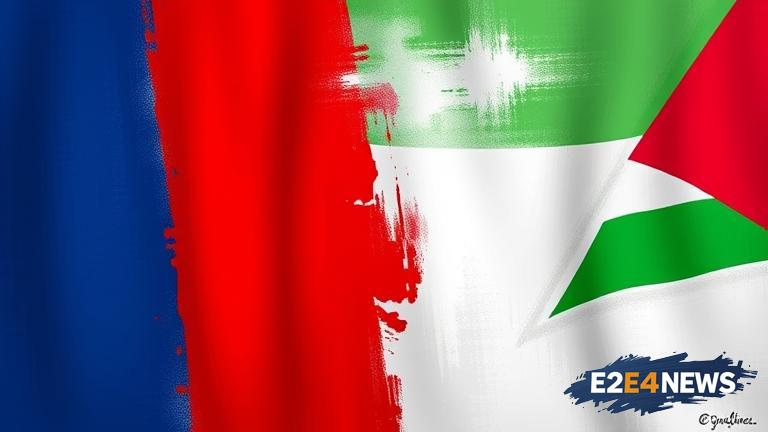In a recent statement, French President Emmanuel Macron expressed his country’s intention to recognize Palestine as a sovereign state. This move is seen as a significant shift in France’s foreign policy, particularly with regards to the Israeli-Palestinian conflict. The announcement has been met with both praise and criticism from various quarters. Macron’s statement is believed to be a response to the ongoing tensions between Israel and Palestine, with the French government seeking to play a more active role in promoting peace and stability in the region. The recognition of Palestine as a state is expected to have far-reaching implications, both diplomatically and politically. It is likely to be seen as a major victory for the Palestinian people, who have long been seeking international recognition of their right to self-determination. However, the move is also likely to be met with opposition from Israel, which has long been opposed to the idea of a Palestinian state. The Israeli government has consistently argued that any recognition of Palestine as a state must be the result of direct negotiations between the two parties, rather than a unilateral decision by a third country. Despite this, Macron’s announcement has been welcomed by many in the international community, who see it as a positive step towards resolving the conflict. The French president’s statement is also seen as a reflection of his country’s commitment to promoting human rights and international law. The recognition of Palestine as a state is expected to have significant implications for the Middle East peace process, which has been stalled for many years. It is likely to put pressure on other countries to follow suit, potentially leading to a shift in the international consensus on the issue. The move is also expected to have implications for France’s relationships with other countries in the region, particularly Israel. The French government has sought to reassure Israel that its decision to recognize Palestine as a state is not intended to be a threat to Israel’s security or sovereignty. However, the move is likely to be seen as a challenge to Israel’s long-held position on the issue. The recognition of Palestine as a state is also expected to have implications for the European Union, which has long been divided on the issue. The French government’s decision is likely to put pressure on other EU countries to reconsider their position on the issue. Overall, Macron’s announcement marks a significant shift in France’s foreign policy, and is likely to have far-reaching implications for the Middle East peace process. The move is seen as a positive step towards promoting peace and stability in the region, and is likely to be welcomed by many in the international community. However, it is also likely to be met with opposition from Israel, and may have significant implications for France’s relationships with other countries in the region.
